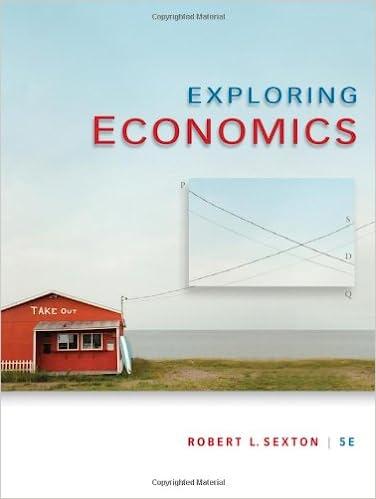Multiple Choice Questions: 1. Monopoly is unlike perfect competition in that a. A monopolists price is greater
Question:
1. Monopoly is unlike perfect competition in that
a. A monopolist’s price is greater than marginal cost.
b. There are no barriers to entry into a monopoly industry.
c. A monopolist earns an economic profit only if its price is greater than ATC.
d. All of the preceding are ways in which monopoly is unlike perfect competition.
e. A and b, but not c, are ways in which monopoly is unlike perfect competition.
2. A price-taking firm and a monopolist are alike in that
a. Price equals marginal revenue for both.
b. Both maximize profits by choosing an output where marginal revenue equals marginal cost, provided that price
exceeds average variable cost.
c. Price exceeds marginal cost at the profit-maximizing level of output for both.
d. In the long run, both earn zero economic profits.
3. Which of the following is true of perfect competition but not true of monopoly?
a. The firm’s average total cost curve is U-shaped.
b. Marginal revenue is equal to price.
c. A profit-maximizing firm chooses output where marginal revenue equals marginal cost.
d. Profits may exist in the short run.
4. Objections to monopolies do not include which of the following?
a. They reduce output below the efficient level of output that would be produced in perfect competition.
b. They reduce the price below what would be charged in perfect competition.
c. They charge a price that is greater than marginal cost.
d. They create a welfare cost.
e. All of the preceding are objections to monopolies.
5. A natural monopoly is defined as an industry in which
a. One firm can produce the entire industry output at a lower average cost than can two or more firms.
b. A single firm controls crucial inputs to the production process.
c. One firm is especially large relative to other firms that could enter the industry.
d. A single seller exists as a result of patent protection.
6. If regulators set a price according to marginal cost pricing, the firm will
a. Earn positive economic profits.
b. Make zero economic profits.
c. Suffer an economic loss.
d. Earn the same level of profits as it would absent regulation.
7. Average cost pricing for a natural monopoly will
a. Result in the socially efficient level of output.
b. Result in a less than socially efficient level of output.
c. Result in a greater than socially efficient level of output.
d. Result in the firm suffering economic losses.
e. Result in the firm earning economic profit.
Fantastic news! We've Found the answer you've been seeking!
Step by Step Answer:
Related Book For 

Question Posted:





